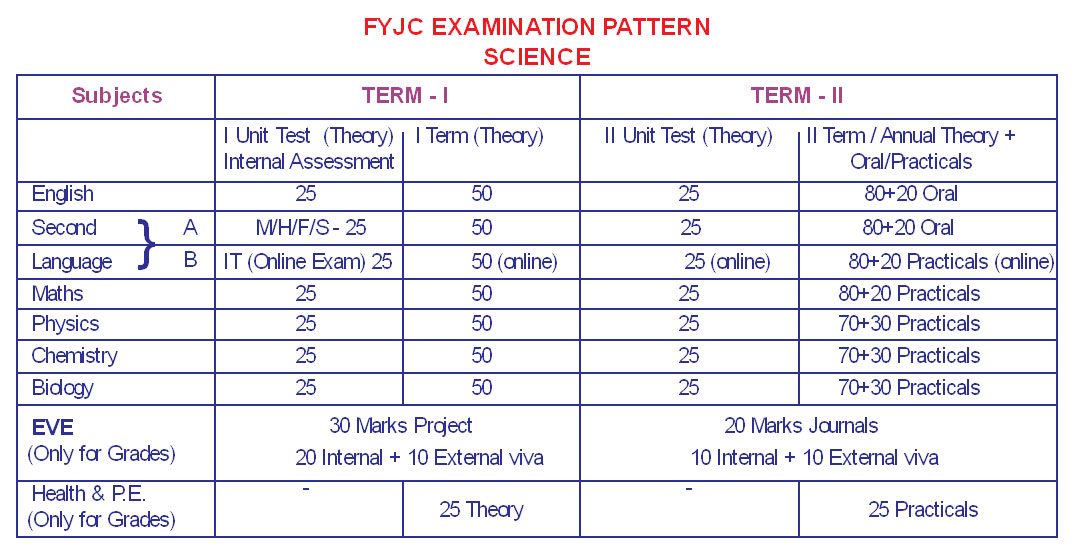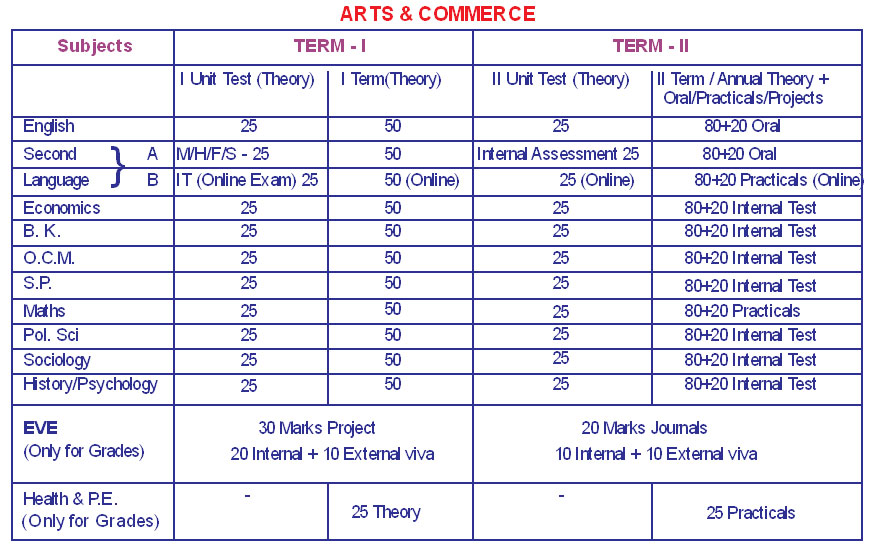
























































li>SEM-II-CLASS TEST-BA-BCOM-BSC-FIRST HALF-APRIL-2025 













































Choice Based Credit System (CBCS) has been implemented with effect from the academic year 2020-21
The examination comprises both Internal ( Continuous/ Formative evaluation) and External assessment ( theory and practical examinations at semester end).
Their weightage is as follows:
| Internal assessment | Semester end examination | Total (for each course or head of passing) |
|---|---|---|
| 40 % | 60 % | 100 % |
The total credits to be earned by the learner to earn the Under Graduate Program degree is 120 Credits and for postgraduate courses 96 credits. The details are as given below.
| Program | Sem. I | Sem. II | Sem. III | Sem. IV | Sem. V | Sem. VI | Total Credits |
|---|---|---|---|---|---|---|---|
| Undergraduate | 20 | 20 | 20 | 20 | 20 | 20 | 120 |
| Postgraduate | 24 | 24 | 24 | 24 | – | – | 96 |
a) Internal Assessment: It is defined as the assessment of the learner on the basis of continuous evaluation as envisaged in the credit based system by way of participation of the learner in various academic and cocurricular activities in the respective semesters of the programme.
| Internal Assessment [40%] | 40 Marks |
|---|---|
| 1) One periodical class test | 15 Marks |
| 2) One Project or Assignment | 15 marks |
| 3) Active participation in class instructional deliveries (APCID) | 10 Marks |
b) Semester End Assessment: It is defined as the assessment of the learner on the basis of performance in the semester-end theory / written examination.
| Semester End Assessment [60%] | 60 Marks |
Duration – 2 hours
ATKT rules are as per the University guidelines. For detailed ATKT rules and other provisions refer to the website of the University of Mumbai.
Students will be admitted to.
Abbreviations and Formulae Used:
The TEN (10) Point Grading System has been introduced from the year 2016-17 for UG & PG
Allotment of Course-wise Grades and Grade Points :
| Grades | Marks (%) | Grade Points | Performance |
|---|---|---|---|
| O | 80 & Above | 10 | Outstanding |
| A+ | 70 – 79.99 | 9 | Excellent |
| A | 60 – 69.99 | 8 | Very Good |
| B+ | 55 – 59.99 | 7 | Good |
| B | 50 – 54.99 | 6 | Above Average |
| C | 45 – 49.99 | 5 | Average |
| D | 40 – 44.99 | 4 | Pass |
| F | < 40 | 0 | Fail |


























































































































































































































Choice Based Credit System (CBCS) has been implemented with effect from the academic year 2020-21
The examination comprises both Internal ( Continuous/ Formative evaluation) and External assessment ( theory and practical examinations at semester end).
Their weightage is as follows:
| Internal assessment | Semester end examination | Total (for each course or head of passing) |
|---|---|---|
| 40 % | 60 % | 100 % |
The total credits to be earned by the learner to earn the Under Graduate Program degree is 120 Credits and for postgraduate courses 96 credits.( MSc Biotech and IT ) The details are as given below.
| Program | Sem. I | Sem. II | Sem. III | Sem. IV | Sem. V | Sem. VI | Total Credits |
|---|---|---|---|---|---|---|---|
| Undergraduate | 20 | 20 | 20 | 20 | 20 | 20 | 120 |
| Postgraduate | 24 | 24 | 24 | 24 | – | – | 96 |
a) Internal Assessment: It is defined as the assessment of the learner on the basis of continuous evaluation as envisaged in the credit based system by way of participation of the learner in various academic and cocurricular activities in the respective semesters of the programme.
| Internal Assessment [40%] | 40 Marks |
|---|---|
| 1) One periodical class test | 15 Marks |
| 2) One Project or Assignment | 15 marks |
| 3) Active participation in class instructional deliveries (APCID) | 10 Marks |
b) Semester End Assessment: It is defined as the assessment of the learner on the basis of performance in the semester-end theory / written examination.
| Semester End Assessment [60%] | 60 Marks |
Duration – 2 hours
ATKT rules are as per the university guidelines. For detailed ATKT rules and other provisions refer to the website of the University of Mumbai.
Students will be admitted to.
Abbreviations and Formulae Used:
The TEN (10) Point Grading System has been introduced from the year 2016-17 for UG & PG
Allotment of Course-wise Grades and Grade Points :
| Grades | Marks (%) | Grade Points | Performance |
|---|---|---|---|
| O | 80 & Above | 10 | Outstanding |
| A+ | 70 – 79.99 | 9 | Excellent |
| A | 60 – 69.99 | 8 | Very Good |
| B+ | 55 – 59.99 | 7 | Good |
| B | 50 – 54.99 | 6 | Above Average |
| C | 45 – 49.99 | 5 | Average |
| D | 40 – 44.99 | 4 | Pass |
| F | < 40 | 0 | Fail |

